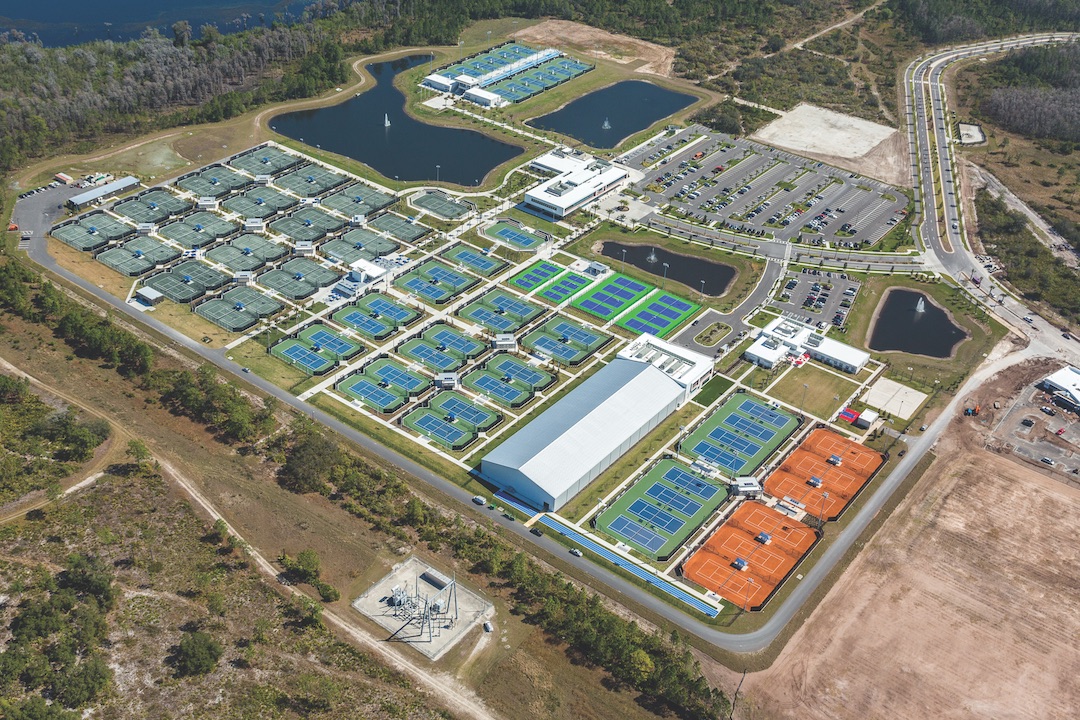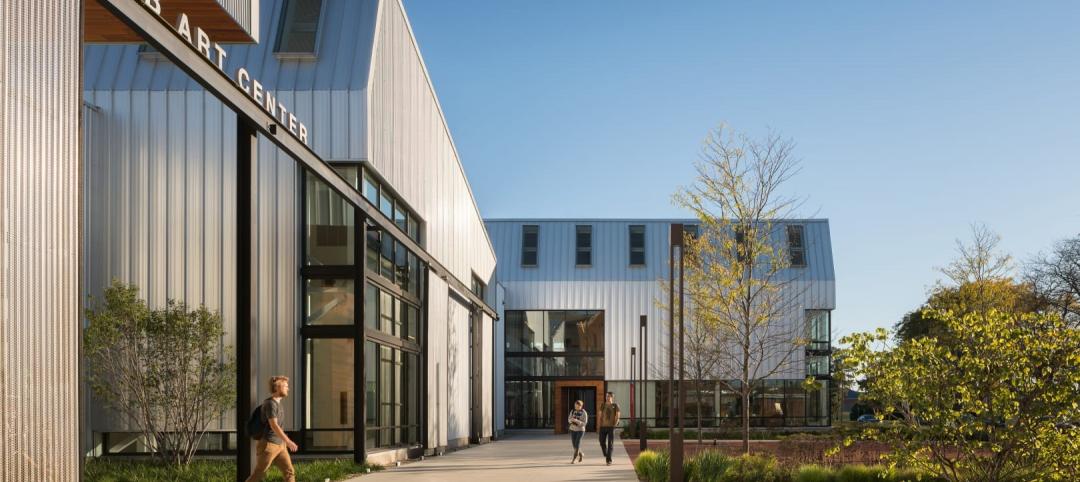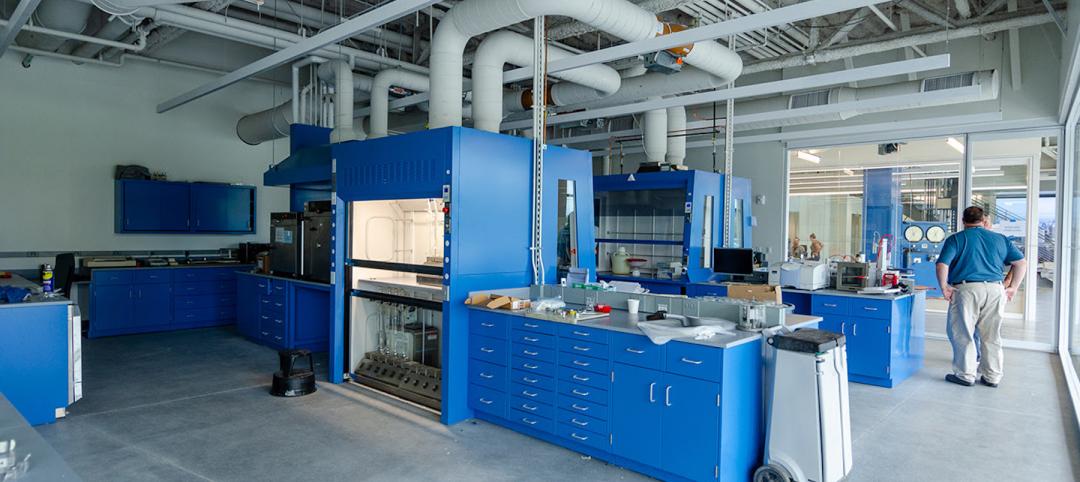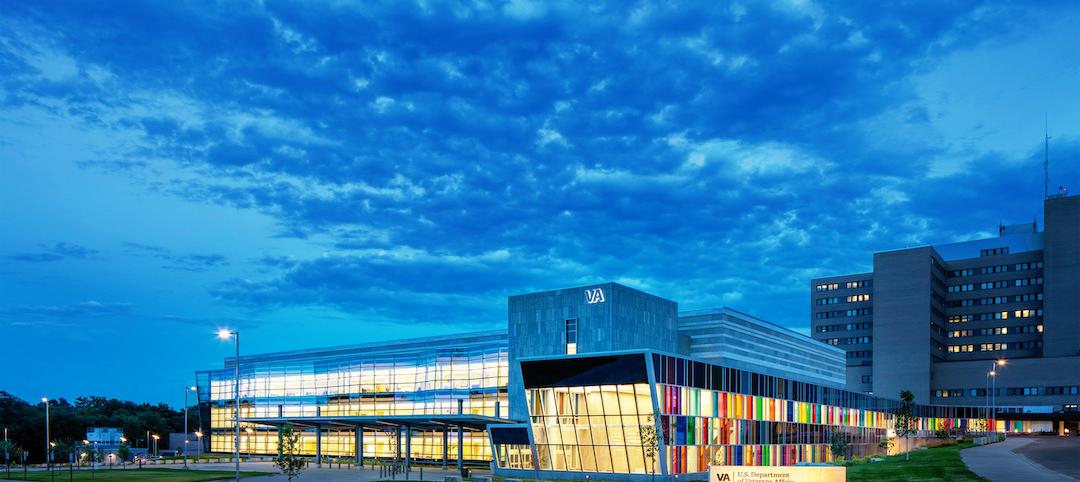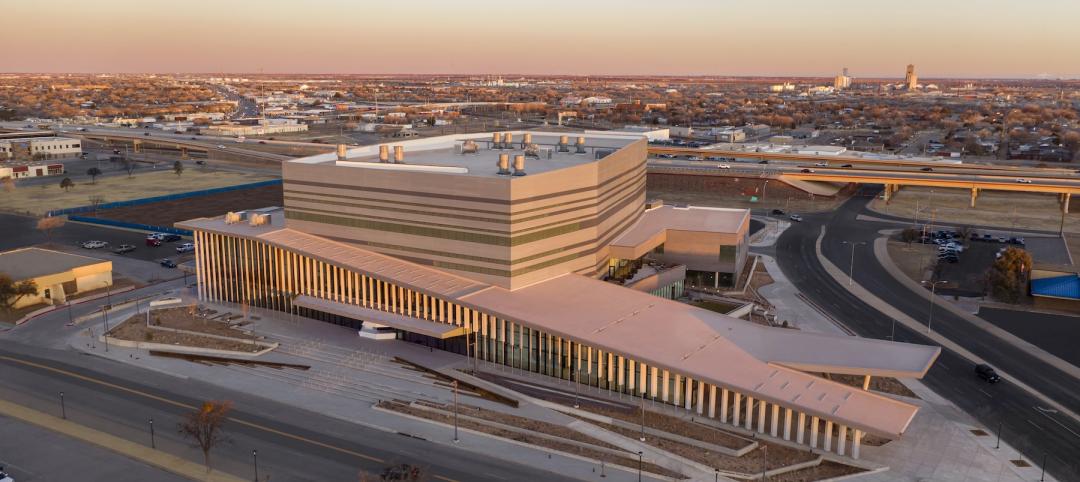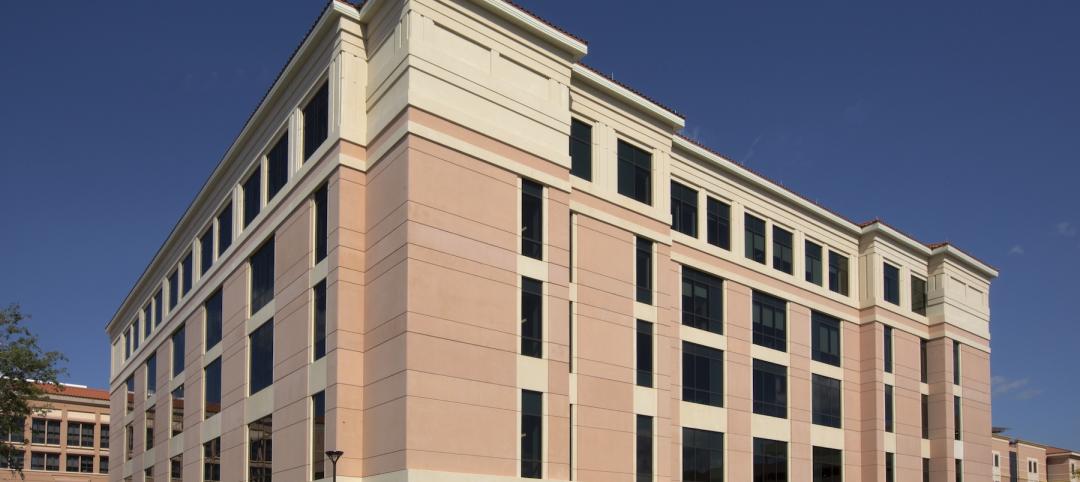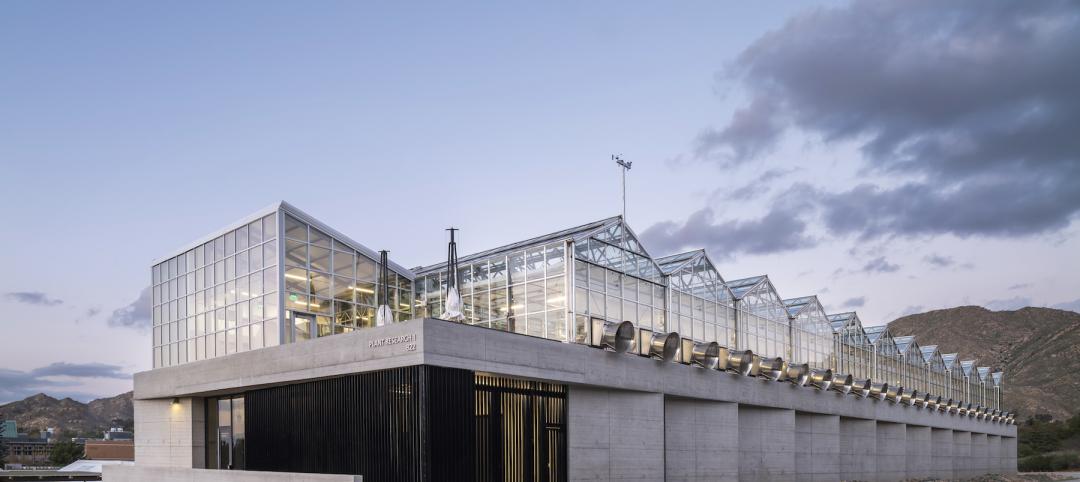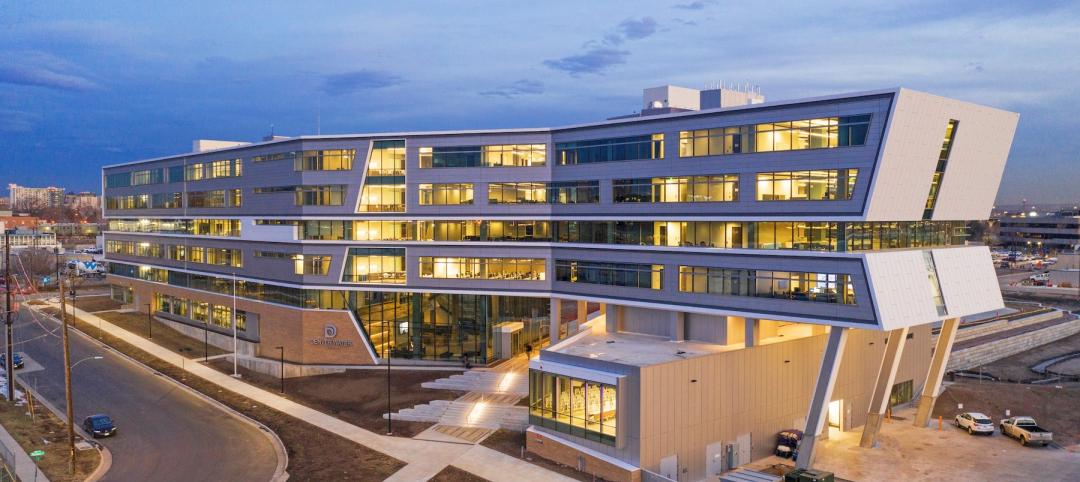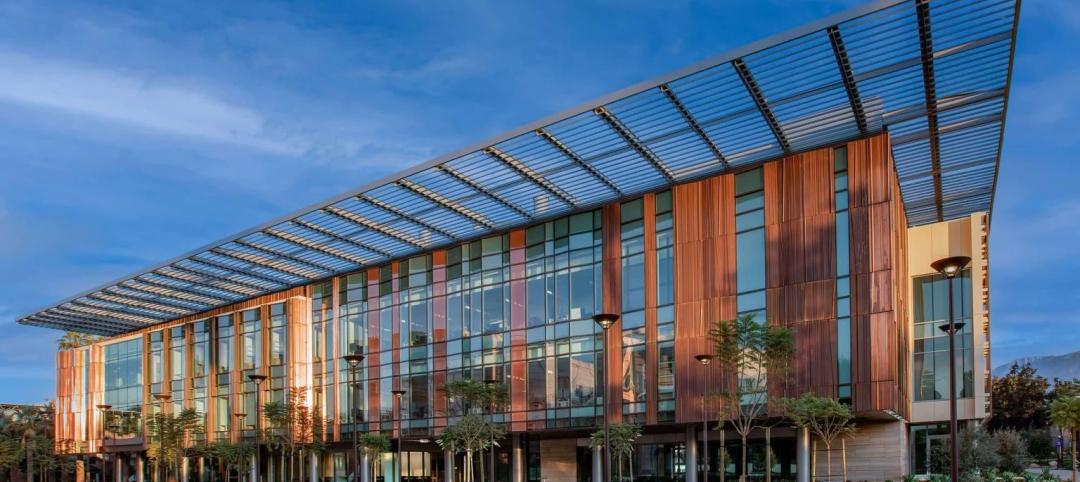The creation of the first six Italian red clay tennis courts in North America was no easy feat. More than 200 tons of red clay had to be shipped from Cremona, Italy, in small five-pound bag increments, which meant more than 80,000 bags of the red clay were delivered on site before they were meticulously placed and rolled to complete the courts.
Quite a process considering the red clay courts are just six of 100 total at the new 64-acre United States Tennis Association National Campus, in Orlando, Fla., which also includes more than 260,000 sf of vertical construction across eight buildings. Dealing with the obstacles associated with “firsts” became the norm when designing and building the campus, which, according to the project team, is unlike any other in the world.
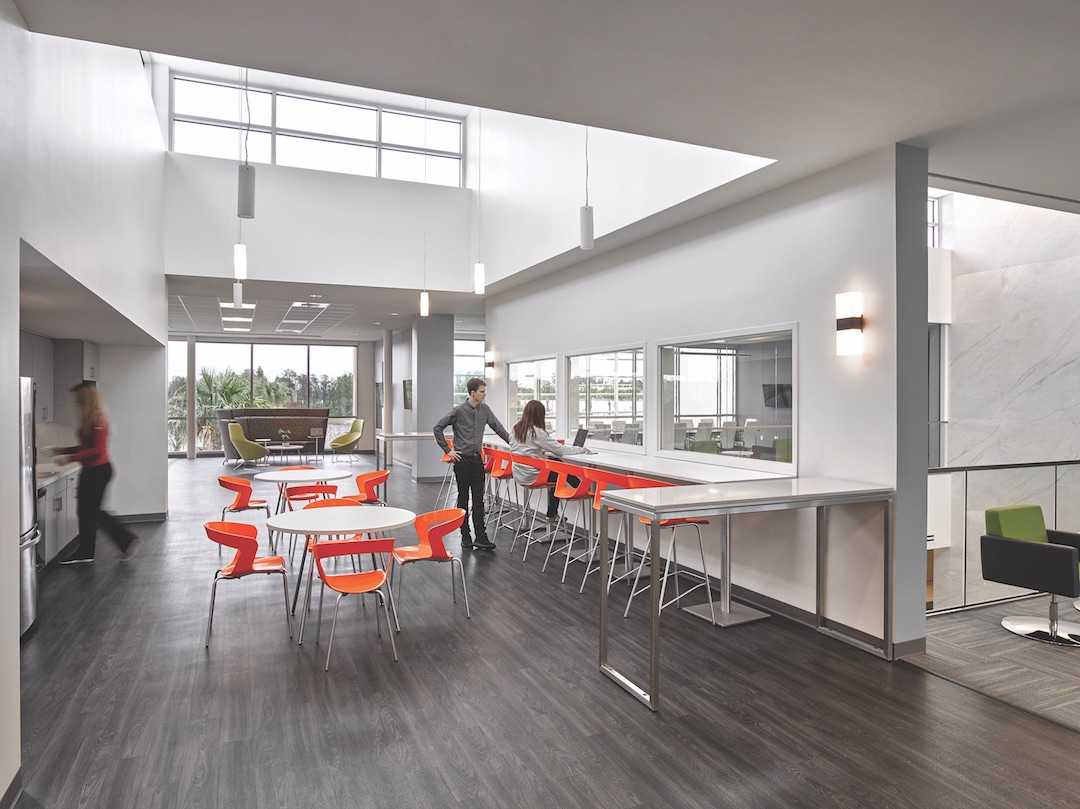 Photo: Garrett Rowland.
Photo: Garrett Rowland.
The red clay courts presented unique issues, but the other 94 courts were no walk in the park either for the design-assist team of HKS Architects and DPR Construction. In order to avoid the asphalt failure issues that plagued the USTA facilities in New York, the team used a custom material mix for the Orlando courts that had never been used before. The unique mix required the team to construct the courts in layers and with an exact sequence of timing.
Several subcontractors were assigned a designated number of courts to work on. Rolling and compacting the asphalt had to be consistent to achieve the precise densities and planarity required, so laser scanning technology was used to accurately measure the required flatness. Each of the courts required 11 applications of acrylic coating—with each coat having to completely cure before the next application—on a base layer of asphalt.
Twenty-six courts are equipped with PlaySight SmartCourt technology. This system offers line calling, live streaming, instant multi-angle video replays, and detailed statistics on every shot played. It requires miles of underground infrastructure to support the system.
The USTA National Campus is so much more than tennis courts. The campus was developed for tennis enthusiasts, but also needed to be functional for the business needs of the USTA. To that end, the campus features a 50,000-sf corporate headquarters building with conference space and a two-story entry lobby, a 47,000-sf player development facility, the University of Central Florida Collegiate Center, and a lodge capable of housing 24 professional athletes.
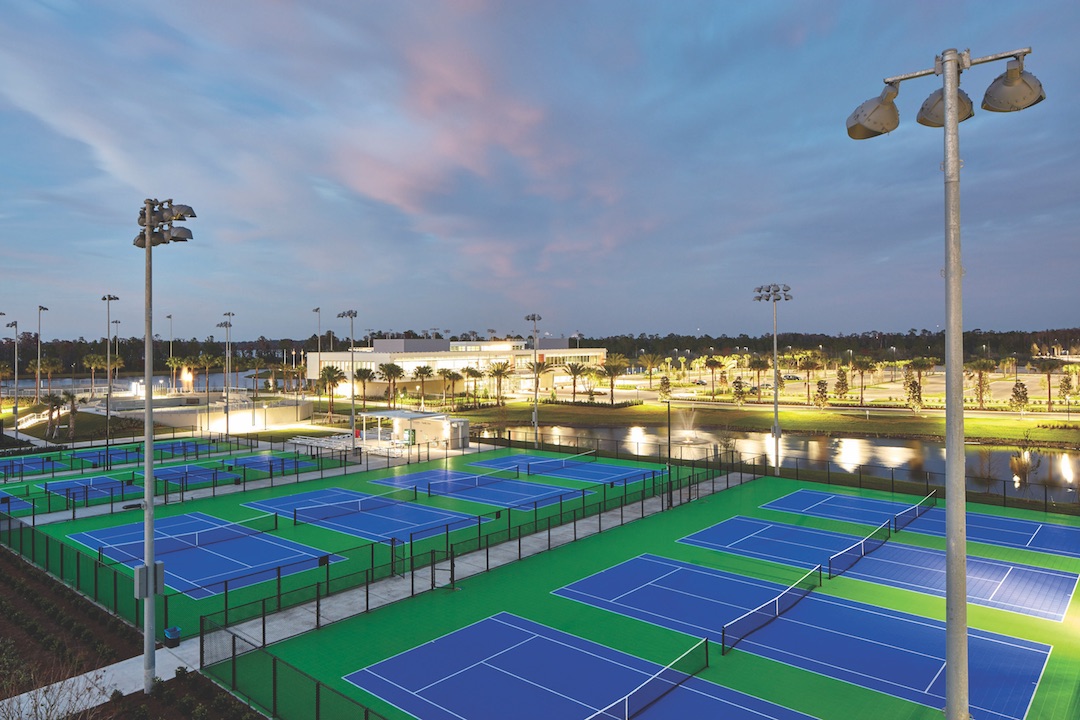 The USTA campus features 100 tennis courts in all, including six Italian red clay courts, the first such courts in North America. Twenty-six courts are equipped with PlaySight SmartCourt, which offers line calling, live streaming, instant multi-angle video replays, and detailed statistics on every shot played. Photo: Garrett Rowland.
The USTA campus features 100 tennis courts in all, including six Italian red clay courts, the first such courts in North America. Twenty-six courts are equipped with PlaySight SmartCourt, which offers line calling, live streaming, instant multi-angle video replays, and detailed statistics on every shot played. Photo: Garrett Rowland.
These features were on the USTA’s wish list, but the only absolute deliverable in the scope of the project was the courts. The project team made it a core focus to deliver the USTA’s full wish list while remaining on budget.
In order to achieve this ambitious goal, the team used target value design (TVD), a Lean approach that brings personnel from the construction, design, and key trades together in one space to produce a design that provides the best value for the owner. TVD collaboration and value engineering made the development and construction of the player development facility, players lodge, and collegiate center possible.
The completed player development facility is equipped with six Rebound Ace indoor courts, a fitness center, physician space, training suite, yoga room, Hydroworx therapy tubs, locker rooms, a sports performance lab, and viewing platforms. The collegiate center includes 12 courts, locker rooms, a trainer room, and a 1,500-seat grandstand.
Through the use of pull-planning and short-interval plans to reach project milestones, the campus’ office building, which will house the 100+ USTA personnel moving to the facility from New York, was finished five months ahead of schedule.
So as not to negatively impact the complex construction of the tennis courts, the team focused on the office building during the rainy months between June and September, and then sequenced the construction of the tennis courts between November and April.
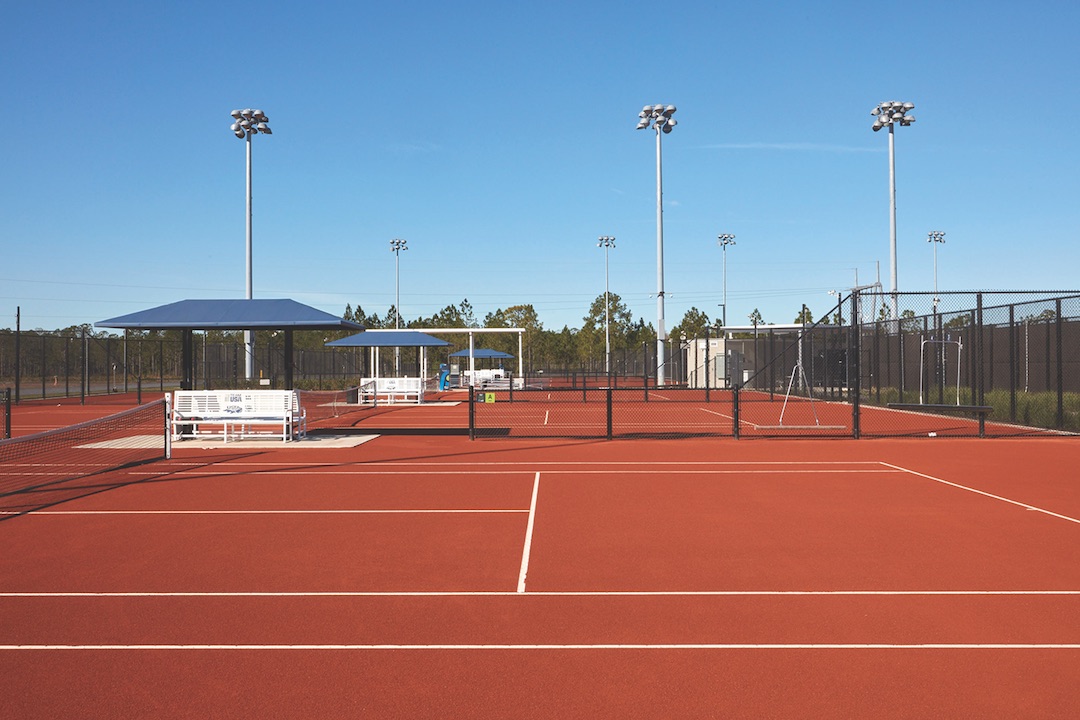 Photo: Garrett Rowland.
Photo: Garrett Rowland.
Building Team — Submitting firm, general contractor DPR Construction Developer Tavistock Development Architect HKS Architects Structural engineer BBM Structural Engineers MEP engineer exp
General Information — Size 260,000 sf Construction cost $54 million Construction time June 2015 to January 2017 Delivery method CM at risk, with design-assist
Return to the 2018 Building Team Awards Landing Page
Related Stories
| Aug 29, 2022
Montana becomes first U.S. state to approve 3D printing in construction
Montana is the first U.S. state to give broad regulatory approval for 3D printing in building construction.
Architects | Apr 22, 2022
Top 10 green building projects for 2022
The American Institute of Architects' Committee on the Environment (COTE) has announced its COTE Top Ten Awards for significant achievements in advancing climate action.
Concrete Technology | Apr 19, 2022
SGH’s Applied Science & Research Center achieves ISO 17025 accreditation for concrete testing procedures
Simpson Gumpertz & Heger’s (SGH) Applied Science & Research Center recently received ISO/IEC17025 accreditation from the American Association for Laboratory Accreditation (A2LA) for several concrete testing methods.
2021 Building Team Awards | Jan 14, 2022
First public-private partnership project in Veterans Administration history saves $34 million in costs
LEO A DALY and McCarthy Building Companies head the project team for the Omaha VA Ambulatory Care Center in BD+C’s 2021 Building Team Awards.
Building Team Awards | Dec 8, 2021
A performing arts center celebrates a legendary rocker and his birthplace
Buddy Holly Hall in Texas receives BD+C’s Silver Building Team Award.
Building Team Awards | Dec 7, 2021
A rapid response to a health emergency
Baptist Hospital of Miami’s 233-bed Hope Tower receives BD+C’s Bronze Building Team Award
Building Team Awards | Dec 3, 2021
Putting science on display, thanks to a design-build approach
UC Riverside’s Plant Growth Environments Facility receives BD+C’s Bronze Building Team Award.
Building Team Awards | Dec 2, 2021
An academic ‘precinct’ brings arts and sciences together
Wofford College’s Chandler Center for Environmental Studies receives BD+C’s Silver Building Team Award.
Building Team Awards | Dec 1, 2021
Denver sets the bar for water reclamation and reuse
A new administration building for the city’s water utility company scores Platinum in BD+C’s 2021 Building Team Awards.
2021 Building Team Awards | Nov 17, 2021
Caltech's new neuroscience building unites scientists, engineers to master the human brain
The Tianqiao and Chrissy Chen Institute for Neuroscience at the California Institute of Technology in Pasadena wins a Gold Award in BD+C's 2021 Building Team Awards.


